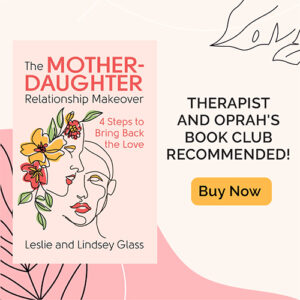Is Silent Burnout Stealing Your Joy
When most people hear the word recovery, they think of addiction—twelve-step meetings, rehab, and the long road back from substance abuse. But there’s another epidemic quietly spreading through homes, offices, and even our social feeds, and it’s leaving millions of people in desperate need of recovery… without a drop of alcohol or a pill in sight. It’s silent burnout. And it’s stealing our energy, joy, and connection one drained day at a time.
Silent Burnout Isn’t Just “Being Tired”
Silent burnout is what happens when the demands on us consistently outweigh the resources we have to meet them. It’s chronic emotional, physical, and mental exhaustion—often paired with cynicism, detachment, and a haunting feeling of What’s the point anymore?
The scary part? Silent burnout isn’t just for overworked executives or ER doctors anymore. Stay-at-home parents, teachers, caregivers, activists, and even teenagers are burning out at alarming rates. You can be burned out from your job, your relationships, your social obligations, or just the relentless grind of being human in a high-pressure world.
The Silent Burnout Symptoms We Ignore
Part of why silent burnout is so insidious is that we often dismiss it as “just stress” or “just a busy season.” But left unchecked, burnout can lead to depression, anxiety, chronic health problems, and even the collapse of relationships.
Signs you might be in “silent burnout” territory:
-
You wake up tired no matter how much you sleep.
-
Things that used to excite you now feel like chores.
-
You find yourself irritable, numb, or disconnected from people you care about.
-
Small tasks feel overwhelming.
-
Your self-care is the first thing to go.
Why Recovery Needs a Bigger Definition
Recovery is not just about putting down a substance—it’s about reclaiming your mental, physical, and emotional health after a period of depletion.
For someone with addiction, that depletion comes from drugs or alcohol.
For someone in burnout, it comes from years of running on adrenaline, perfectionism, and people-pleasing until your body and mind finally tap out. Both require repair. Both require change. Both require you to start living in a way that supports your well-being instead of draining it.
The First Step: Permission to Rest
In addiction recovery, the first step is admitting there’s a problem. In burnout recovery, the first step is often giving yourself permission to slow down—without guilt. That means:
-
Saying “no” more often.
-
Taking breaks before you “earn” them.
-
Making space for joy that’s not tied to productivity.
-
Asking for help before you collapse.
Rest is not laziness. It’s maintenance. And you can’t heal while you’re still running at full speed.
Building Your Silent Burnout Recovery Plan
Recovering from silent burnout isn’t about a week-long vacation—it’s about ongoing habits that restore you instead of drain you.
Some essentials:
-
Daily Check-Ins – Ask yourself: How do I feel? What do I need? Then listen to the answer.
-
Boundaries – Protect your time, energy, and attention like the precious resources they are.
-
Nutrition, Movement, and Sleep – Your brain and body can’t recover if you’re running on fumes.
-
Connection – Seek out people who energize you, not just the ones who need you.
-
Meaningful Work – Even small, creative or service-based projects can reignite a sense of purpose.
Recovery as a Lifelong Practice
Whether it’s from addiction, silent burnout, or any form of deep exhaustion, recovery isn’t a one-and-done event—it’s an ongoing relationship with yourself. It’s noticing the warning signs before you hit empty. It’s learning to refill your own tank, not waiting for someone else to rescue you.
In other words: recovery is for all of us now.
And if you’re reading this and recognizing yourself in these words, maybe it’s time to start yours today.
You don’t have to hit rock bottom to start climbing back up.
You just have to decide you deserve to feel alive again.
CHECK OUT MY BOOK
BUY IT TODAY!
Follow us onInstagram
Like us on Facebook
Comment on our posts
More Healthy Eating Articles
Mother-Daughter Relationship Assessment: Take The Quiz
How Healthy Eating Helps Addiction Recovery
What Meal Plan Is Right For You






















